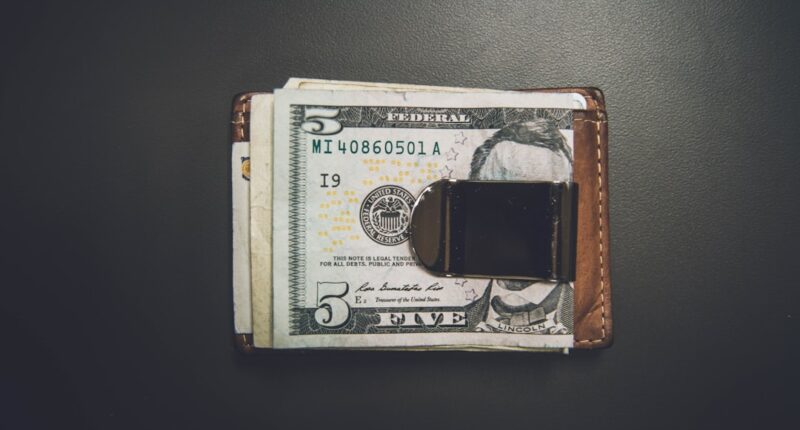Non-fungible tokens (NFTs) are unique digital assets representing ownership or authenticity of specific items or content, such as artwork, videos, music, or tweets. Unlike interchangeable cryptocurrencies, NFTs are one-of-a-kind and cannot be exchanged on a like-for-like basis. NFTs typically utilize Ethereum blockchain technology, employing smart contracts to store and validate ownership information.
Each NFT possesses a unique digital signature verifying its authenticity and ownership. NFTs are stored in digital wallets, providing a secure and decentralized method for managing and trading these assets. Before purchasing an NFT, it is important to research the specific project or artist.
Understanding the creator’s reputation and previous work can offer insights into the NFT’s potential value and authenticity. Factors such as scarcity and demand should also be considered, as they can significantly impact an NFT’s value over time. Familiarizing oneself with digital wallet setup and usage is essential for ensuring smooth and secure NFT transactions.
By comprehending NFT fundamentals, blockchain technology, and conducting thorough research on specific NFTs of interest, individuals can make more informed decisions when participating in the NFT market.
Key Takeaways
- NFTs are unique digital assets that represent ownership of a specific item or piece of content on the blockchain.
- Potential risks of NFTs include scams, frauds, and copyright infringement, so it’s important to thoroughly research before buying.
- When evaluating NFT projects and artists, consider factors such as the creator’s reputation, the concept and quality of the artwork, and the potential for long-term value.
- Storing NFTs securely is crucial to protecting your investment, so consider using a reputable digital wallet and implementing strong security measures.
- Diversifying your NFT portfolio can help minimize risk, so consider investing in a variety of projects, artists, and types of NFTs.
- NFT regulation is still evolving, so stay informed about the current legal protections and potential future developments that could impact NFT ownership and trading.
- The future of NFTs is uncertain, but trends such as the integration of NFTs into gaming and virtual reality could impact the value and utility of NFTs in the future.
Navigating the Risks: How to Identify Potential Scams and Frauds
Verifying Authenticity and Avoiding Fake NFTs
As with any emerging market, the NFT space is not immune to scams and fraudulent activities. One common scam in the NFT space is the creation of fake or unauthorized NFTs, where scammers claim ownership of digital content they do not have the rights to. To avoid this, it’s crucial to verify the authenticity of the NFT and ensure that the creator has the legal rights to sell the digital asset.
Price Manipulation and Market Research
Another risk to be mindful of is the potential for inflated or manipulated prices of NFTs. Some individuals may engage in price manipulation to artificially drive up the value of an NFT, creating a false sense of demand and scarcity. It’s important for buyers to conduct thorough research on the market value of an NFT and be cautious of any sudden spikes in price that seem unjustified.
Phishing Scams and Fraudulent Websites
Additionally, be wary of phishing scams and fraudulent websites posing as legitimate NFT marketplaces. Always double-check the URL and ensure that you are using a reputable and secure platform when buying or selling NFTs.
Guaranteed Returns and Investment Schemes
Furthermore, it’s crucial to be cautious of investment schemes or promises of guaranteed returns in the NFT space. As with any investment, there are inherent risks, and no one can guarantee future profits. Be wary of individuals or platforms that make unrealistic claims about potential returns on NFT investments.
By staying informed about potential scams and fraudulent activities in the NFT space, buyers can protect themselves from falling victim to malicious actors and make more informed purchasing decisions.
Researching the Market: Tips for Evaluating NFT Projects and Artists

Before diving into the world of NFT investments, it’s essential to conduct thorough research on the market and evaluate different NFT projects and artists. One crucial aspect to consider is the reputation and track record of the artist or creator behind the NFT. Look into their previous work, achievements, and recognition within the art community to gauge their credibility and potential for long-term value.
Additionally, consider the uniqueness and originality of the content being offered as an NFT, as these factors can significantly impact its desirability and value in the market. Furthermore, it’s important to stay informed about current trends and developments in the NFT space. Keep an eye on popular marketplaces, such as OpenSea or Rarible, to see which types of NFTs are gaining traction and attracting attention from collectors and investors.
By staying up-to-date with market trends, you can identify potential opportunities for investment and gain a better understanding of what types of NFTs are in demand. Another valuable tip for researching the market is to engage with the community and seek insights from experienced collectors and investors. Joining online forums, social media groups, or attending virtual events related to NFTs can provide valuable networking opportunities and allow you to learn from others’ experiences in the space.
By leveraging the knowledge and expertise of the community, you can gain valuable insights into potential investment opportunities and make more informed decisions when evaluating NFT projects and artists.
Securing Your Investment: Best Practices for Storing and Protecting NFTs
Once you’ve made an investment in an NFT, it’s crucial to prioritize security and take necessary measures to protect your digital assets. Storing NFTs in a secure digital wallet is essential for safeguarding them from unauthorized access or theft. When choosing a digital wallet for your NFTs, opt for reputable and secure options that offer features such as two-factor authentication and encryption to enhance security.
Additionally, consider using hardware wallets for an extra layer of protection against online threats. Furthermore, it’s important to back up your digital wallet and store your private keys in a safe and secure location. Losing access to your digital wallet or private keys can result in permanent loss of your NFTs, so it’s crucial to have backup measures in place to prevent such scenarios.
Consider using offline storage options, such as hardware wallets or paper wallets, to securely store your private keys and ensure that you can regain access to your NFTs if needed. Another best practice for securing your investment is to stay vigilant against phishing attempts and fraudulent activities targeting digital asset holders. Be cautious of unsolicited emails or messages requesting sensitive information related to your NFT holdings, as these could be attempts to compromise your security.
Always verify the authenticity of any communication related to your NFT investments and refrain from sharing sensitive information with unverified sources.
Diversifying Your Portfolio: Strategies for Minimizing Risk in NFT Investments
Diversification is a key strategy for minimizing risk in any investment portfolio, including NFTs. Instead of putting all your funds into a single NFT project or artist, consider spreading your investments across multiple assets to reduce exposure to any single risk factor. Diversifying your portfolio can help mitigate potential losses from underperforming assets while allowing you to capitalize on different opportunities within the NFT market.
Additionally, consider diversifying across different types of NFTs, such as art, collectibles, virtual real estate, or domain names. Each category of NFTs may have unique market dynamics and demand drivers, so diversifying across different types of digital assets can provide a more balanced exposure to the overall market. By diversifying your portfolio across various types of NFTs, you can spread risk while potentially benefiting from different trends and developments within the broader NFT ecosystem.
Furthermore, consider diversifying across different blockchain networks when investing in NFTs. While Ethereum is currently the dominant blockchain for NFTs, other networks such as Binance Smart Chain or Flow are gaining traction as alternative platforms for creating and trading digital assets. By diversifying across different blockchain networks, you can reduce dependency on any single platform while gaining exposure to different ecosystems within the broader NFT space.
NFT Regulation: The Current State of Legal Protections and What to Watch For

Securities Laws and NFTs
One area of regulatory focus is around securities laws, as some NFTs may be classified as investment contracts or securities under certain jurisdictions. It’s essential for investors to understand whether the NFT they are purchasing could be considered a security and comply with relevant regulations governing securities offerings.
Intellectual Property Rights and NFTs
Intellectual property laws play a crucial role in protecting creators’ rights and ownership of digital content represented by NFTs. Investors should be mindful of potential copyright infringement issues when buying or selling NFTs that contain copyrighted material.
Consumer Protection and NFTs
Furthermore, consumer protection regulations may come into play when considering issues such as misrepresentation or fraud in NFT transactions. As regulatory agencies continue to assess the implications of NFTs on consumer rights, investors should stay informed about any developments related to consumer protection laws that could impact their rights as buyers of digital assets.
The Future of NFTs: Predictions and Trends to Consider Before Making a Purchase
Looking ahead, it’s important for investors to consider future predictions and trends in the NFT space before making a purchase. One trend to watch is the integration of NFTs into various industries beyond art and collectibles, such as gaming, entertainment, real estate, and virtual goods. As more industries explore the potential applications of NFTs, there could be new opportunities for investors to participate in emerging markets within the broader digital asset ecosystem.
Additionally, advancements in blockchain technology and scalability solutions could address current challenges related to high transaction fees and environmental concerns associated with certain blockchain networks. Investors should stay informed about developments in blockchain infrastructure that could improve the efficiency and sustainability of NFT transactions. Furthermore, regulatory developments will continue to shape the future landscape of NFT investments.
As governments around the world assess the regulatory implications of NFTs, investors should monitor any changes in laws or policies that could impact their ability to buy, sell, or hold digital assets. In conclusion, understanding the fundamentals of NFTs, navigating potential risks, conducting thorough research on the market, securing investments, diversifying portfolios, staying informed about regulatory developments, and considering future trends are all essential factors for investors to consider before entering the world of non-fungible tokens. By taking a proactive approach to educating themselves about these aspects of NFT investments, investors can make more informed decisions when buying or selling digital assets in this rapidly evolving market.
FAQs
What is an NFT?
An NFT, or non-fungible token, is a digital asset that represents ownership or proof of authenticity of a unique item or piece of content, such as artwork, music, videos, or collectibles, using blockchain technology.
How do you buy an NFT?
To buy an NFT, you typically need to use a cryptocurrency wallet and connect it to an NFT marketplace or platform. Once connected, you can browse and purchase NFTs using cryptocurrency, such as Ethereum.
What are the risks of buying NFTs?
Buying NFTs can be risky due to the speculative nature of the market, potential for fraud or scams, lack of regulation, and the possibility of losing money if the value of the NFT decreases. Additionally, there may be legal and copyright issues related to the ownership and use of NFTs.
What should I consider before buying an NFT?
Before buying an NFT, consider the reputation of the creator or seller, the authenticity and uniqueness of the item, the potential for future value appreciation, the terms of ownership and usage rights, and the overall market trends and risks associated with NFTs.
Are there any regulations for buying NFTs?
As of now, the NFT market is largely unregulated, which means there are few consumer protections in place. It’s important to do thorough research and exercise caution when buying NFTs to avoid potential scams or legal issues.





